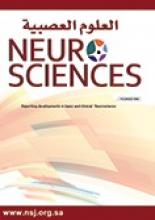Abstract
Hypertension is the most important controllable and modifiable risk factor for stroke. The relationship between blood pressure and stroke mortality is strong and linear. Angiotensin receptor blockers (sartans) are competitive pharmacological antagonists of angiotensin II receptors, and some of them are approved for use in the treatment of hypertension. These drugs also show anti-inflammatory effects by reducing the cytokine levels. The anti-inflammatory effects of sartans play a role in reducing cerebral injury following stroke, and improve the outcome of stroke in terms of improving cognitive function. In humans, sartans are safe in hypertensive acute stroke patients and may offer advantages independent of blood pressure control. Sartans promote neovascularization and thereby provide long-term cerebro-protection in terms of vascular protection and enhancement of early angiogenic remodeling. In this review, the beneficial effects of sartans in the management of stroke are discussed, considering the results of experimental and clinical studies.
- Copyright: © Neurosciences
Neurosciences is an Open Access journal and articles published are distributed under the terms of the Creative Commons Attribution-NonCommercial License (CC BY-NC). Readers may copy, distribute, and display the work for non-commercial purposes with the proper citation of the original work.






